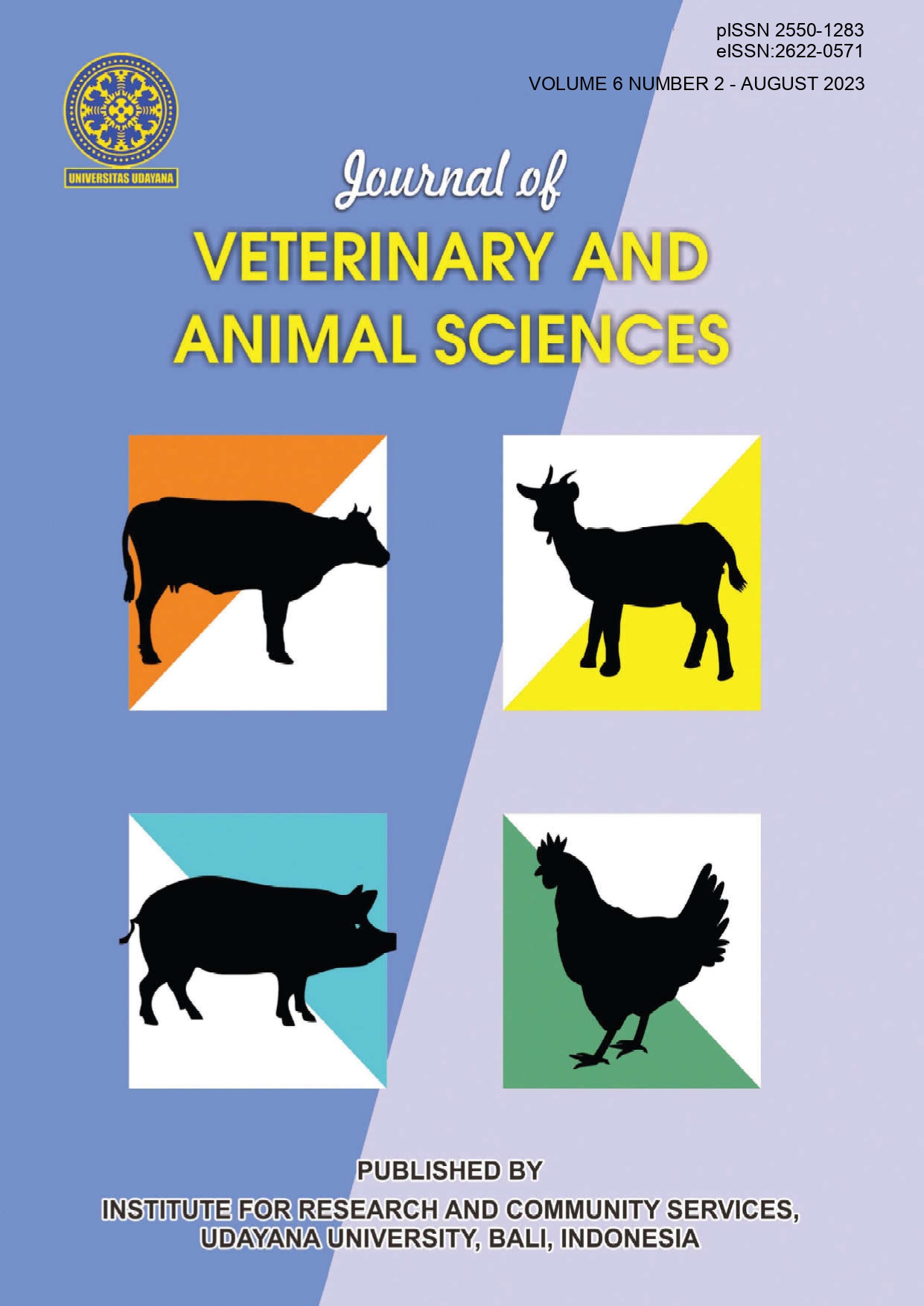Case Report: Severe Ticks Infestation with Ehrlichiosis in Mixed Dog
Abstract
Abstract. Canine ehrlichiosis is a disease caused by infection of Ehrlichia sp., which is a tick-borne disease. Transmission of ehrlichiosis in dogs can occur through the bite of Rhipicephalus sanguines as a transmission vector. A Shih Tzu-Terrier mixed dog named Mogli was examined with complaints of decreased appetite, weight loss, fever, and severe pruritus. Physical examination showed the presence of petechies, vulnus on the skin and Rhipicephalus sanguineus tick infestation, especially around the eyes and back. Complete hematological examination and blood smear showed leukocytosis, lymphocytosis, thrombocytopenia, increased granulocytes, hematocrit, and the presence of intracytoplasmic bodies in monocytes. The results of the examination with the test kit showed a positive result, which means had antibodies to Ehrlichia sp. Based on the examinations, the dog was diagnosed with severe tick infestation with accompanied ehrlichiosis. The dog was given doxycycline 5 mg/kg BW twice a day orally for 28 days and fluralaner 250 mg orally, tolfenamic acid 4 mg/kg BW intramuscularly (IM), chlorpheniramine maleat 2 mg once daily orally for 14 days, and vitamin B-complex once a day orally for 28 days. After 14 days of treatments showed changes in the dog's appetite that returned to normal, the dog looked active, the dog's body temperature was normal, the infestation of the Rhipicephalus sanguineus ticks significantly reduced, and the frequency of pruritus was reduced. The results of the hematological examination on the fourteenth day showed that all parameters were within the normal range.











